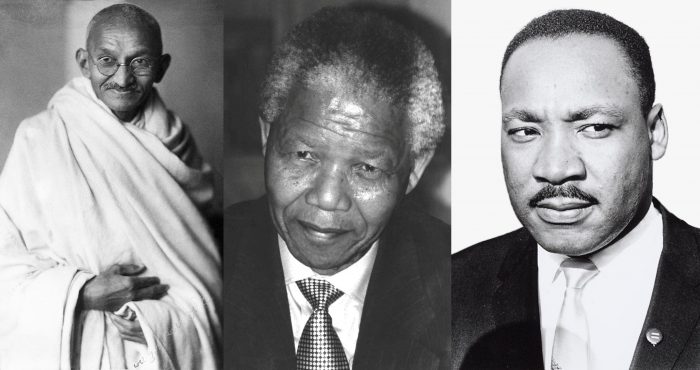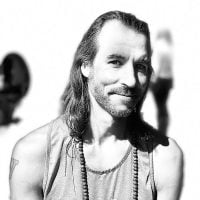Love is not an Empty Platitude.
“Hate cannot drive out hate; only love can do that.”
When I quoted those words nearly a month ago, I never expected them to be controversial. But the response to that article only proves how divided America is on this issue.
One comment, in particular, jumped out at me: “The propaganda in this essay has become as threadbare as the sort used by the hatemongers, baskets of deplorables, and nasty, nasty women out there.”
Another striking example is illustrated by that week’s winning articles—my article, titled “This quote from Martin Luther King Jr. is what we need to Heal America” came in at number two. The number three article was “No America, it’s not Time to Heal.” I can’t think of a better indication of how deeply divided even Elephant Journal readers are on this topic.
There are many people who feel justified in their anger, who seem to feel that anger is the only available response to the current political situation.
Martin Luther King Jr.’s words are not an empty platitude, full of hollow words. With love, Gandhi broke the backbone of the British empire and won independence for India. With love, MLK led sweeping breakthroughs in reducing segregation in the United States. With love, Nelson Mandela ended apartheid in South Africa.
All of these momentous changes occurred without violence, without bloodshed, because they were founded on love, not hate.
It’s natural and healthy to feel anger in response to infuriating events. It’s natural and healthy to desire justice for those who broke the law, to crave the change of unjust systems.
It’s natural and healthy to allow our emotions to arise and experience them fully, even the unpleasant emotions.
What’s unhealthy is losing ourselves in anger, living in a state of constant anger, and allowing hatred to soil all of our thoughts and actions. Or acting out of anger, seeking vengeance instead of justice, and desiring our perceived wrong-doers feel pain—to suffer for their actions, as they have caused us to suffer.
When we succumb to anger, when bitterness and resentment swirl constantly in our minds, we harm ourselves and those we love.
“Resentment is like drinking poison and then hoping it will kill your enemies,” said Nelson Mandela. There’s a whole lot of people out there chugging on the resentment bottle right now, and it’s poisoning all of us.
When we act out of anger, intending to harm others, we only perpetuate the cycle of hatred and violence.
Instead, we must feel our anger, accept it head-on, examine it, process it, and let it go. Often, we don’t want to feel the intensity of our emotions, so we turn our focus outward, looking for who we can blame for this unpleasant feeling. Instead of dealing with our emotions, we rant at others for causing them.
Yes, people who broke the law need to go to jail. Yes, spineless, soulless politicians who ignore their own morals in favor of political expediency need to be voted out of office. Yes, this evil system that continues to oppress minorities and people of color needs to change.
But we, as the mass of voters on one side, must maintain love for our counterparts on the “other side.” Because in reality, there is no “other side,” just our fellow voters, our fellow Americans, our fellow humans—other people just trying to earn a living, provide for their families, and get by in this world locked in the grip of greed, power, fear, and anger.
We must face our emotions with bravery and courage. It’s never wrong to feel what we feel. We can’t control how we feel; all we can control is how we act on those feelings.
Paraphrasing the words of the Buddhist teacher Sharon Salzberg:
“We can’t control what arises in our minds. When conditions come together for a thought to arise, it will arise. We can’t control what arises in our minds, so why blame ourselves for it?”
We don’t ask to feel angry; it arises when a situation collides with our unique combination of life experiences and innate personality.
We can’t control our anger, but we can accept it, acknowledge it, and feel how it colors our thoughts and actions.
We can accept our emotions with loving-kindness, also known as maitri or metta, in Buddhism. Fully accepting ourselves with all our flaws.
When we can fully accept ourselves as we are, then we can fully accept others as they are.
Those people on the “other side” can’t control their emotions any more than we can. Their thoughts and emotions arise in them based on their unique combination of life experiences and innate personality. If we experienced the same life and were born with the same personality tendencies, we would feel and think the same things.
Even if the “others” are succumbing to their anger and lashing out in hate, that doesn’t make it right for us to do the same. Meeting anger and hate with more anger and hate—no matter how justified—only creates more anger and hate.
So yes, we should take to the streets to peacefully demonstrate against the unjust system. Yes, we should vote cowardly, morally bankrupt politicians out of office. Yes, we should prosecute those who break the law and attempt to use violence to send their message.
But we should do all those things from a place of love and compassion, not hate and anger.









Read 9 comments and reply